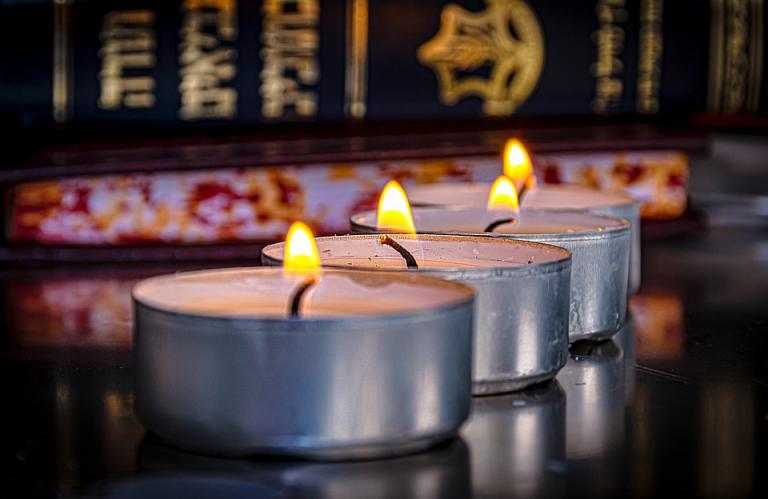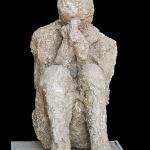We earlier discussed how Christians and Jews are united. Now we need to look at how Jews and Christians have different approaches to the idea of theological truth.
Jews and Christians approach theological truth in a slightly different manner. Yet one can only make so much of this subtle difference before wandering too far afield.
For Jews, truth is primary dialectical. For Christians, it’s primarily revealed. Again, this distinction has many weaknesses and limitations, but it does address some of the practical differences in the traditions.
Most Jews approach their sacred texts mythopoetically and not literally. The bible is a mix of history, wisdom teaching, moral insight, poetry, and myth.
Part of the grand Jewish mythic narrative is the giving of Torah and the covenant at Sinai. The Torah describes Moses going up the Mountain, God’s voice speaking to all the Jewish people, the Jews accepting God’s revelation of how to live and the nature of justice and goodness. Most liberal Jews don’t approach this core narrative literally.
The Torah, whether it results from revelation or is a human product still requires interpretation. No text is self interpreting. And Jews don’t formalize or establish a central interpretative authority. Yes, sages and rabbis expound, but ultimately, each Jew must wrestle with the texts for themselves within their communities.
Christianity affirms similar notions of revelation. Jesus reveals the truth and God’s will in his teaching and actions. And yes, there’s room for interpretation and personalized application of such. However, many Christian traditions and denominations have established interpretative authorities. These are offices, clergy, and individuals who are deemed reliable and authoritative for rendering binding or at least normative interpretations of the texts and Christian practice.
Creeds, confessions, encyclicals, synod and councilor documents reflect the work and judgment of such authorities. Catholics have the magisterium, Anglicans and Lutherans have synods and general conventions, other traditions have other structures.
What Unites Us?
So how do three Jews with six (or more opinions) stay unified?
Being Jewish is about being in the world in a certain way. To accept a certain set of broad values (which most Jews and even Christians accept) – love your neighbor, welcome the stranger, pursue justice, seek peace, help the needy, tend to the sick, free the oppressed – we all agree, but we tend to part ways when it comes to what embracing these specific stances involves. Welcome the gay couple? Welcome the atheist?
The Torah unites us, because it provides us with the same story, a narrative we share with Christians, too. It’s a collection of stories about a common humanity and shared dignity and freedom from narrowness and slavery and seeking home among exile. To be a Jew is to call the narratives of Torah one’s own, to agree to place yourself in that ongoing story, to integrate the holidays, practices, and values of the narrative. To be a Jew, even a convert, is to have a shared history. And like most families, our individual family members tell our family stories slightly differently.
Our liturgy unites us. The outline of the liturgy and most of its central prayers are thousands of years old and are prayed by Jews around the globe, regardless of movement or denomination. We all pray the same liturgy, with a few minor differences here and there.
Shabbat unites us. Each week come Friday evening, many Jews light candles and say blessings and enjoy a meal with family and friends. Saturday, many try to set the day aside to rest, engage in nourishing activities, creativity, family time, and so on. The sabbath transcends politics or particular differences.
Community happens, and unites us, because we try to make time for it. Each Friday night at Temple starts with a wine and cheese social that lasts nearly an hour. There’s another social, called the Oneg, after services. Our Temple offers discussions, classes, art activities, dinners, lunches – there’s a high emphasis on getting together and getting to know one another.
Antisemitism unites us. Sadly, many Jews are persecuted and even hated. We’ve all unfortunately seen violence against Jews increase over the past few years. While this hatred and accompanying violence are evil, they do have the effect of drawing Jews in a bit tighter to one another.
Insights for Christians
Most Christians share similar realities. Many denominations have a common liturgy. Christians share the common narratives of the bible. And some Christians are sadly persecuted as well.
Jews and Christians share much in common and should try to learn from one another. Judaism offers insights into how to maintain unity despite theological diversity.
Yes, theology matters and cannot be artificially separated from action or even identity. But theology must take place within a communal context and understanding must emerge can genuine community can exist without theological conformity.
When Christians disagree, they tend to create new denominations.
When Jews disagree, they tend to shrug and pour some more wine, after all, it’s going to be a long conversation.
_________________________
Gregory Gronbacher earned his B.A. in philosophy and theology at Franciscan University, his masters in philosophy (M.Phil.) at the International Academy of Philosophy, and did his doctoral work in philosophy (Ph.D.) at the Loyola Institute, Trinity College, Dublin.
Gregory blogs at Open Table Judaism on the Jewish Channel here at Patheos. He’s actively engaged with both his local Quaker and Jewish communities.
LINK
https://www.patheos.com/blogs/opentablejudaism/
image credit: https://pixabay.com/photos/shabbat-shalom-shabbat-shalom-4752553/













